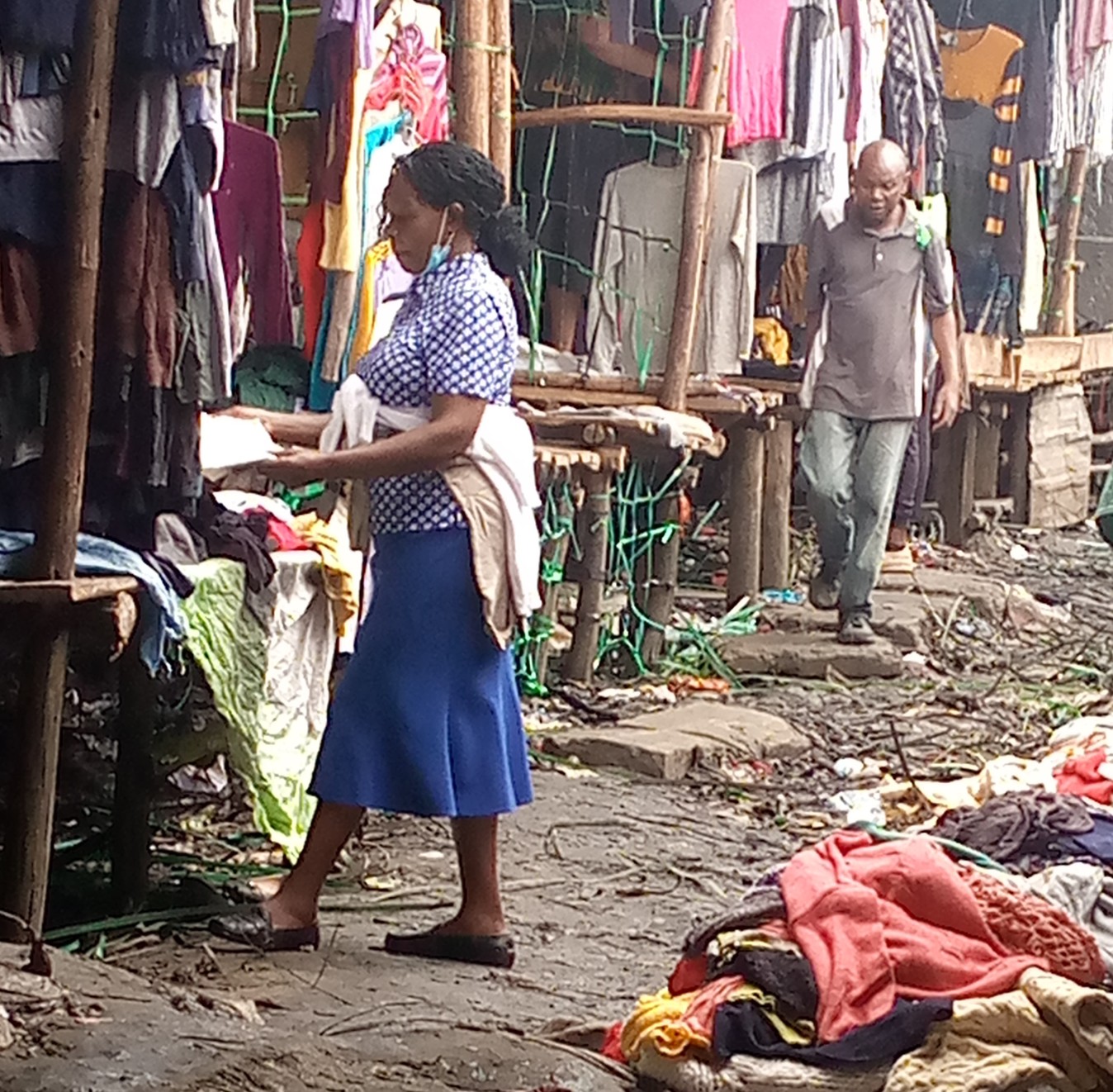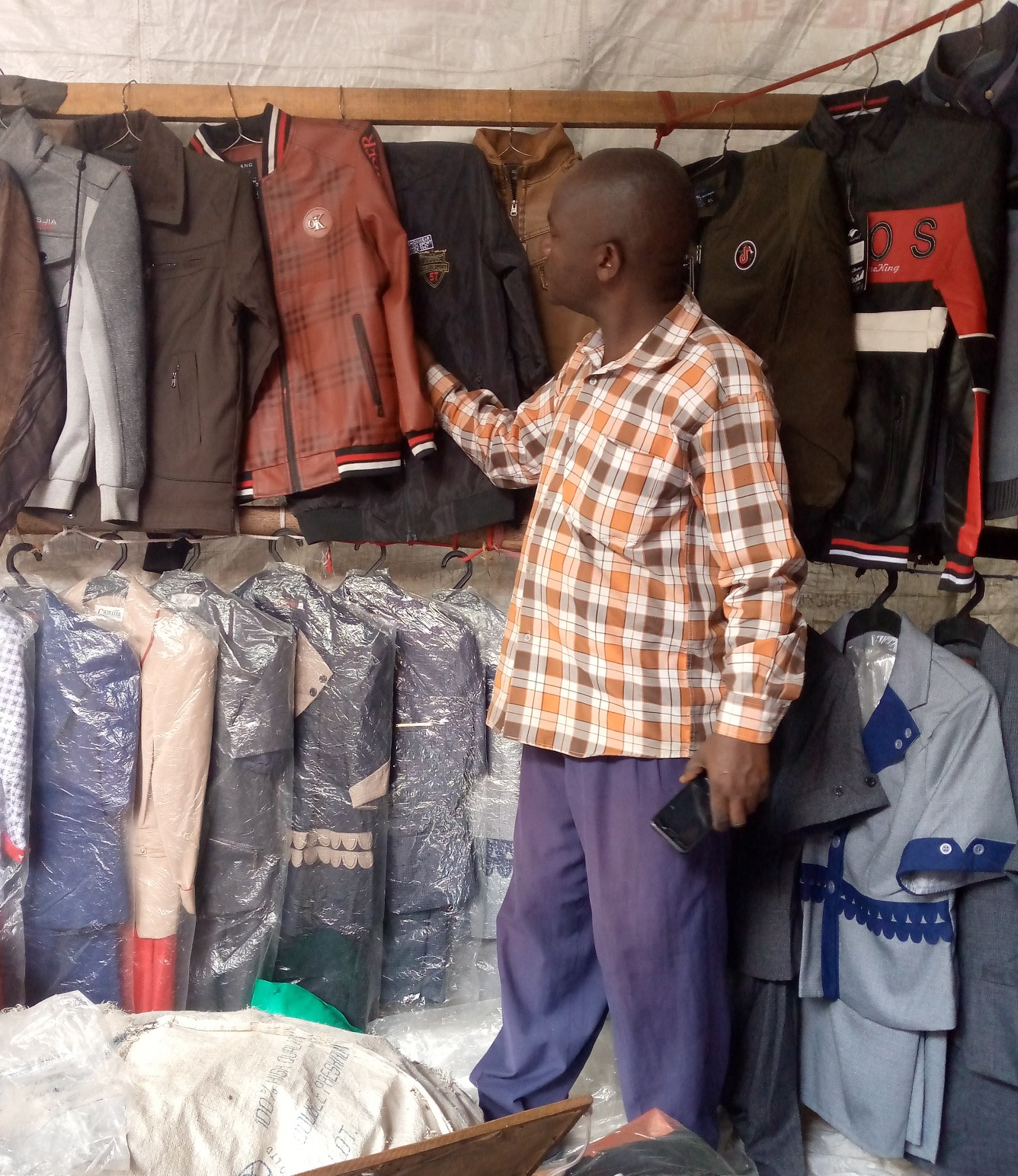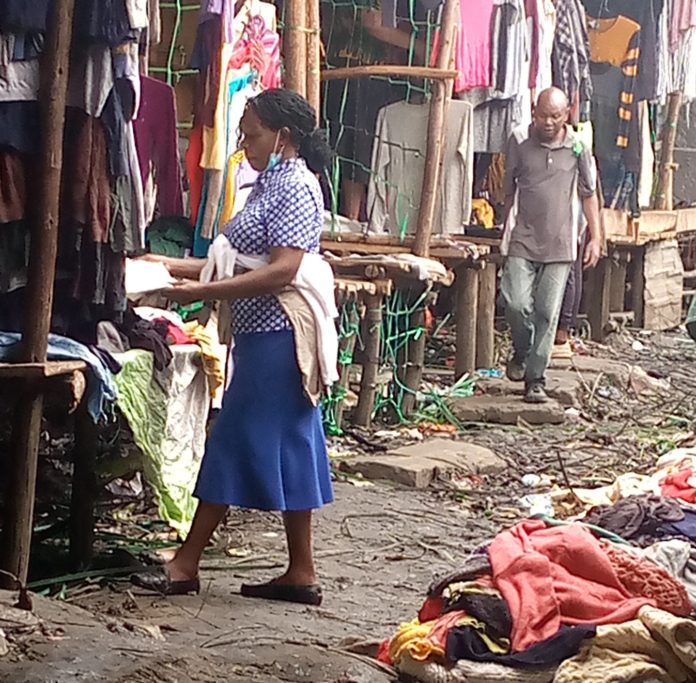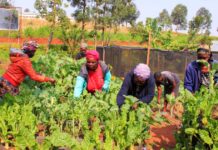By Lenah Bosibori
Nairobi, Kenya: It is 12 noon Friday, deafening noise from hawkers and huge loudspeakers, human traffic, the blazing sun, and the mud on the ground welcomes me to one of the largest markets in the East African region, Gikomba.
I pass through a shortcut, cutting across Burma market whic is a well-known meat zone for Nairobi residents, everybody moving up and down to make ends meet.
Gikomba market is one of the largest and most famous clothes-flea markets, people go here as early as 4am in the morning to find affordable clothes to wear.
Kenyans love fashion and this is one of the best places for them, the market is a labyrinth of narrow pathways, shouting vendors, and heaps of clothes.

The best time to visit is on a Saturday morning because this is the time vendors bring their new bales of clothes, later in the day and further on in the week, the price increases slightly, shoppers can also find shoes and other wares in this busy market.
After a while, I arrive at the famous bridge that welcomes you with a traffic jam of hawkers and traders moving up and down.
I meet Teresia Wambui arranging her second-hand clothes, she is one of the oldest traders at the market. Wambui says that she has been operating her second-hand clothes business for over 22 years now but the frequent fires have given her high blood pressure.
“The last inferno on August 2021 gave me a heart attack until I developed hypertension, my property worth 200,000 shillings burnt down in a second and this was money from a loan,” says Wambui.
“My stall also got burnt down, that is why I am here at the open-air market,” she adds, this is what you hear from most of the traders around this area.
Another challenge the traders are facing is underweighed goods, “goods are underweighed they used to be 45 kgs but currently, they are 40kgs but the price is still the same,” she adds.
Wambui adds that the level of hygiene in the market is really bad and yet they pay market levy fees to the County government to sort out such matters.
“This open air space is very expensive, nowadays I don’t even look for profits since people don’t have money, I can manage only Kshs 500 per day as profit,” she adds.
“No single person from the open-air market was given space at the new market at the new storey building, it was meant for people from the blocks,” adds Wambui.
Festus Gitangi another trader who has been here since 2000 agrees with Wambui that fire is the main challenge facing them currently.
“I fear every day when I leave this premise thinking that my stock worth Kshs 800,000 might get burnt down because all these fires happen from 1 am to 3 am,” says Gitangi.
Further on into the market, I met a young man Kevin Kariuki who has a diploma in Hotel catering and management from a Nairobi college, as a result of unemployment he found his way here and resulted to carrying goods for people who purchase in quantity, he says that he sometimes goes home empty-handed since second-hand clothes have been very expensive for people to purchase in bulk rendering him jobless.
“I come here at 6 am every day hoping to get people in the morning but people just buy in small quantities leaving me with nothing to carry,” he says.
Isabel Githinji the secretary-general area 42 Gikomba Traders Association says that the return of Chinese traders at Kenyan largest open-air market is also giving them a huge competition for local traders.
“When these foreigners start competing with the ordinary citizens, we Kenyans suffer more because we cannot compete with them,” says Githinji.
She urges the government to keep away foreigners from taking their job and let them stick to their only job of building highways which is what the Chinese are best known for.
Githinji appreciates the coming in of the Nairobi Metropolitan Services (NMS) as they have shown quick responses to the latest inferno.
“Since the coming of the NMS, we have seen a quick response to Gikomba fires who have been better prepared with enough water and firefighters although it has not helped in averting this challenge, we want the fire out of Gikomba completely,” she adds.
Githinji calls upon the security management at the market to increase its intelligence and deploy more security at night because the fire seems to be like sabotage since they always occur between 1 am – 3 am every time.
“What we want is a conducive environment for business, Kenyans are hard-working people,” says Githinji.
“We also call upon for proper data to be taken so that when new blocks are built and those people paying trading license of stalls should be first beneficiaries because they have been there for long,” she adds.

Ali Mohamed, the Project Coordinator of Kamukunji Human Rights Defenders says that they have tried to assist the affected traders where possible.
“We have tried to link the affected traders with the relevant institutions depending on the crisis, so far 68 affected traders were given Kshs 20,000 after the last inferno from various government offices, though they could not reach everybody,” he says.
Mohamed adds that they also help to link traders with Kenya Red Cross and various government and enterprises that help with loans.
“There are so many institutions and enterprises that offer loans like Women Enterprise Fund and Youth Fund but the majority of Kenyans do not know about them, we help them to fill the forms and also help them with stamps,” says Mohamed.














